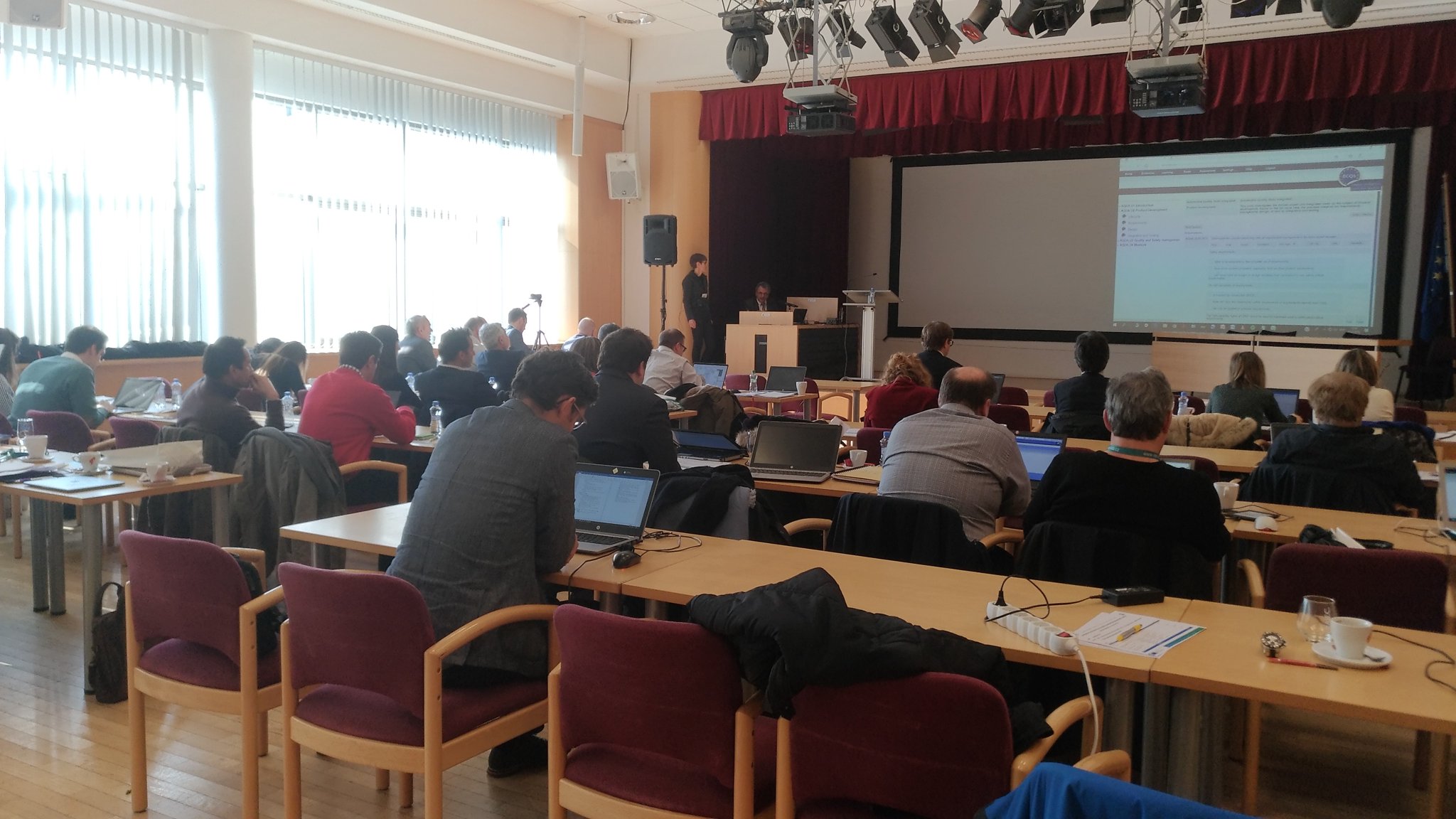Project DRIVES is officially launched
Project DRIVES is officially launched
Project DRIVES is officially launched
The aim of the project is to implement the Blueprint objectives through the establishment of an Automotive Sector Skills Alliance.

On the 1st of March, the Minister of Industry and Trade of the Czech Republic, Tomáš Hüner, and the Rector of the Technical University of Ostrava, Václav Snášel, opened the kick-off Conference ceremony of the project DRIVES, that brings together 24 European partners, from 11 EU countries. The speeches highlighted the need to address the challenges linked to digitalisation of the economy and the adaptation of the education of the workforce.
In a recorded message, the European Commissioner for internal Market, Industry, Entrepreneurship and SMEs, Elzbieta Bienkowska, highlighted that DRIVES “results can inform policies not only at the EU but also regional and national level” and that the “initiative will only work if all relevant stakeholders along the automotive value chain take part, including at national and regional level across the EU”. Ms. Bienkowska underlined that “connected and automated driving will change mobility as we know” leading to a fast path on industry transformations.
The Commissioner recalled that DRIVES, building on the recommendations from the GEAR2030 group, is one of the first six projects that were launched within Blueprint on Sector Skills – an initiative to overcome skills’ shortages in specific sectors. Moreover, “industry should take the driving seat”.
The Automotive and Mobility Industries’ Unit, at DG GROW, underlined the challenges faced by DRIVES in regard to the shortage of skills, due to the ageing workforce and the lack of attractiveness of the existing job roles to younger generations.
The European Commission estimates that by 2025 it will be necessary to fill more than 900.000 jobs in the automotive sector, about half of which will require high-level qualifications. Targeting this market need, DRIVES will implement the Blueprint objectives for the automotive sector, namely the delivery of human capital solutions to supply chain SMEs, through the establishment of an Automotive Sector Skills Alliance, covering all levels of the value chain (vehicle production, automotive suppliers and automotive sales and aftermarket services).
The project will run from 2018 to 2021, with a budget of 4 million euros, funded by the Erasmus + Sector Skills Alliance action.
PROJECT OBJECTIVES
The aim of the project is to implement the Blueprint objectives for the automotive sector, namely the delivery of human capital solutions to supply chain SMEs through the establishment of an Automotive Sector Skills Alliance, covering all levels of the value chain (vehicle production, automotive suppliers and automotive sales and aftermarket services).
The key objectives are defined as following:
- Assessing and inclusion of existing and proven Skills Frameworks in European countries, modernize them to cope with future automotive trends (using expert analysis companies), and deployment into other countries.
- Enabling mutual recognition of awards and certificates between formal and informal automotive education, VET and universities, and across Europe in order to enhance the use and success of government funded mobility programmes such as Erasmus+.
- Implementation of a common European automotive skills umbrella and integration of existing skills frameworks (Sector skills council, ECQA, AQUA, SkillMan, Skills Passport, etc.) including pilot trainings.
- Deployment of the Apprenticeship Marketplace by enhancing its effectiveness for automotive job seekers. Creation of IT infrastructure to facilitate dissemination of common job requirements, which will be available for job seekers, training providers (namely universities), VET providers and other stakeholders. Promotion of the portal as a labour market place on local, national and European levels.
MAIN DELIVERABLES
The objectives of the project are achieved in a number of concrete deliverables in following areas:
- Profiles (occupational profiles in ESCO format, Automotive Skills Strategic Roadmap or establishing a pool of skills under defined norms)
- Recognition (encompassing already used tools such as OASQF – Open Automotive Skills and Quality Framework, ERFA – European Recognition Framework for Automotive or harmonised skills passport for harmonised ERFA)
- Implementation (Integrated Online Campus or European certificates)
- Apprenticeship (Understanding theMarketplace and Promoting the apprenticeship marketplace)
- Evaluation (recommendations on common European standards of automotive job descriptions or actions towards national and European stakeholders)
More info:
- Website: http://www.project-drives.eu
- Linkedin: Project Drives
- Twitter: @ProjectDrives // #DRIVESProject
- Facebook: Project Drives
